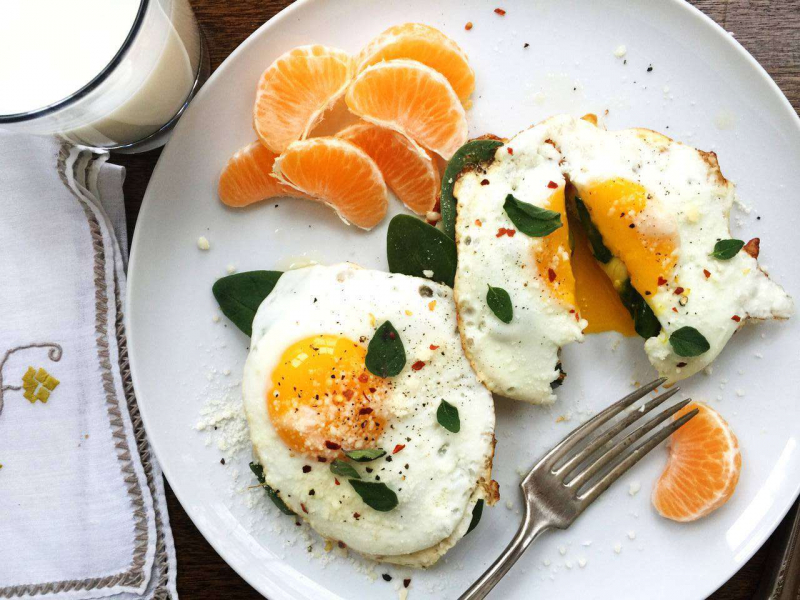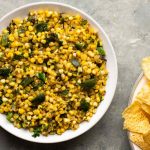Scrambled, Fried, Poached, and Boiled
Eggs are wonderful for any meal of the day. And there are numerous ways to cook them—including scrambled, fried, poached, and hard-boiled. Here’s a guide to cooking every style of egg perfectly—once you’ve cracked the eggs open!
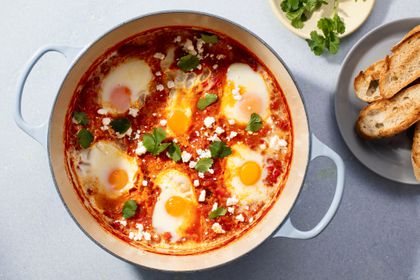
-
Scrambled Eggs
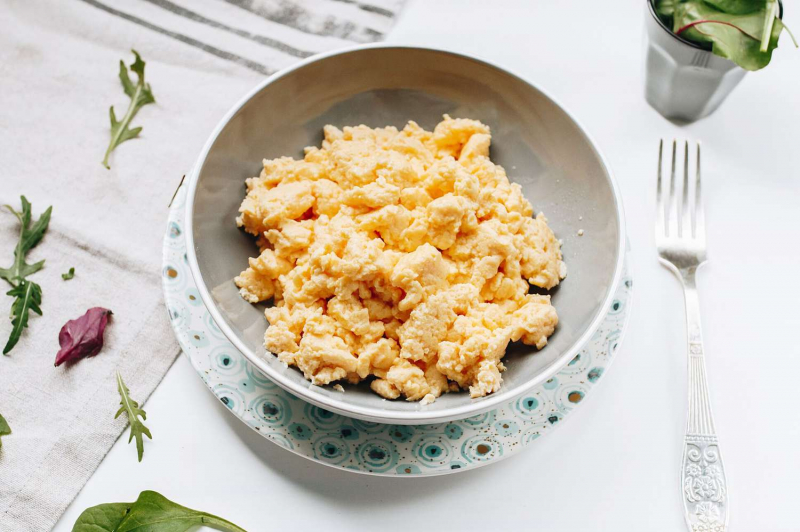
The key to perfect scrambled eggs is whisking the eggs vigorously and thoroughly in a bowl (using an actual whisk or simply a fork), then immediately adding them to your hot pan. Whisking doesn't simply to blend the whites and the yolks—it also aerates the eggs so they turn out fluffy. And remember, allowing your beaten eggs to sit in the bowl lets that air escape. It's also best crack your eggs into the bowl and add seasonings before whisking.
Meanwhile, your nonstick omelet pan should be heating up over medium heat. Add 1 to 2 tablespoons of butter and let it to sizzle for a minute or two. That sizzling means the water in the butter is cooking away. (This is when you should whisk your eggs.) Pour them in and let them sit without stirring until the edges start to set. Then, gently move the eggs around with a heatproof silicone spatula until they’re slightly less cooked than you want them to be (which is a matter of personal preference), as the eggs will continue to firm up after you plate them.
-
Omelets
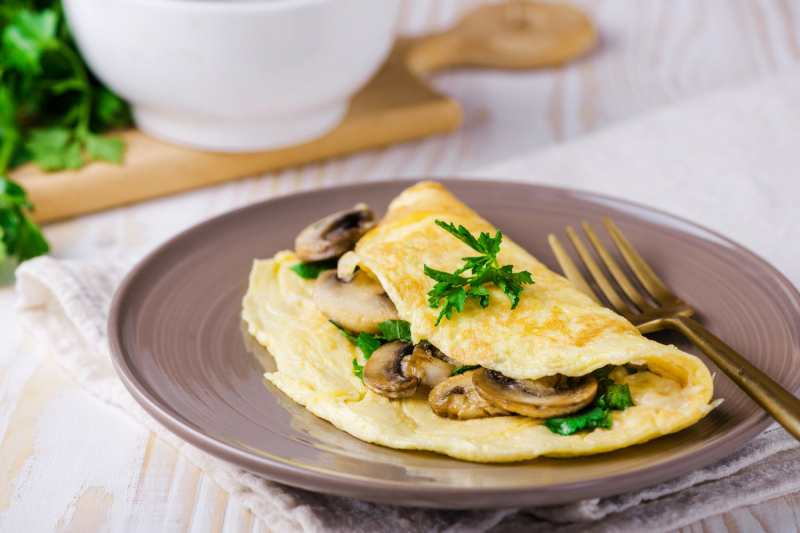
Making an omelet is really just taking your scrambled egg technique in a different direction. As above, season, whisk, then add the eggs to the pan. But instead of moving the eggs around in the pan, your goal is to let them set into a sort of pancake. When the bottom and edges are set, use your spatula to scoot one edge of the egg in toward the middle while tipping the pan to let the liquid egg flow into that space.
Repeat this scoot-and-tip technique until there's no more liquid egg. At this point, you can add your fillings and then fold it over, let it cook for another minute, and serve. Note that fillings are optional. Simply folding eggs over and serving it is technically an omelet. Indeed, in France, it's customary to prepare omelets this way.
Medium heat works better for omelets than medium-high since the eggs will spend longer in the pan.
-
Fried Eggs
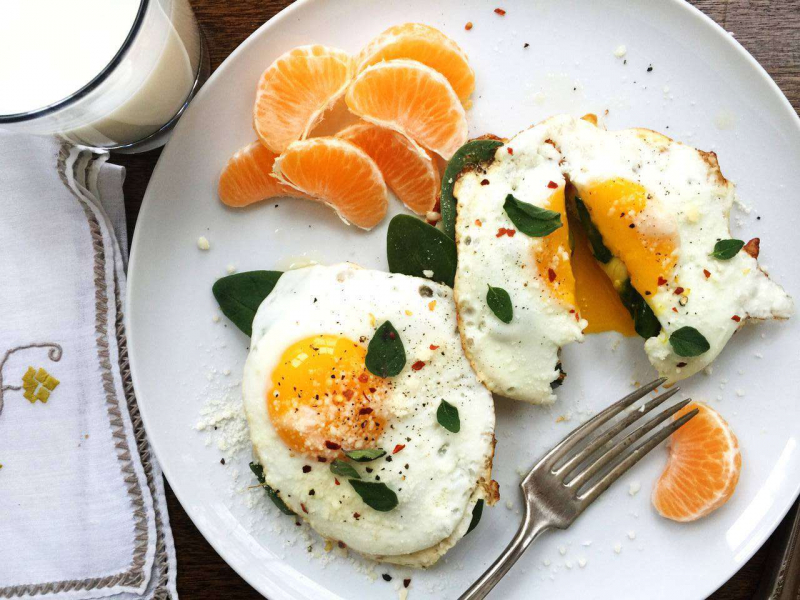
With fried eggs, there’s no beating or whisking of the egg before cooking it. Instead, the egg is cracked directly into a hot pan.
There are two types of fried eggs: sunny-side up and over. The difference? Sunny-side up eggs are not flipped and over eggs are. The terms over-easy, over-medium and over-hard refer to how long the eggs are cooked after flipping them. And while flipping eggs without breaking the yolks isn't the easiest thing in the world, it's not that difficult either.
For sunny-side up, heat the pan over medium-high heat. Add butter, let it sizzle for a minute, then crack your egg into the pan. Season with Kosher salt right there in the pan. The objective is to cook the eggs until the tops of the whites are fully set while the centers of the yolks are still liquid. A great trick is to add a tablespoon of water to the pan and then cover it. The steam helps cook the tops of the eggs, and by the time the water evaporates, it's done. Loosen the edges with your silicone spatula, slide it onto a plate, then season with freshly ground black pepper.
For over eggs, you're going to flip the egg once the whites are mostly set. To flip, use a flat spatula, which you ease underneath the egg and gently tip it over. This is actually pretty easy, especially if the eggs are fresh—the membrane around the yolk weakens as it ages.
For over-easy, cook for another minute, then serve; the whites will be cooked, but the yolk still runny. For over-medium, cook for another minute and a half; the yolks will be partially cooked but still liquid. Over-hard means the yolks are solid; cook for another two minutes or longer.
-
Poached Eggs
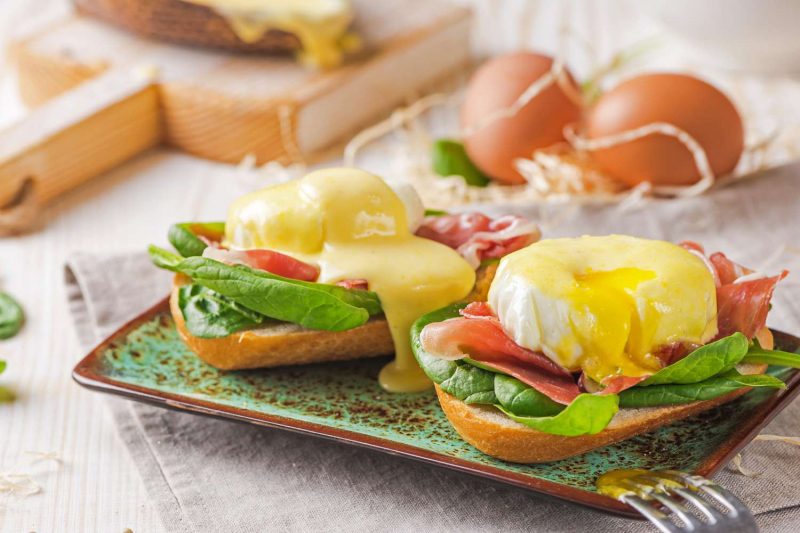
There are several techniques for poaching eggs and while they almost all produce a decently final product, some are more difficult than others.
The best, most foolproof method for poaching eggs is to do it off the heat. Fill a pot 3/4 full of water, season it with salt as if you were making pasta (the water should be salty), and bring to a boil. Add a tablespoon of white vinegar to the water. The acid helps keep the eggs compact, so the whites don't spread out. Using the freshest eggs possible also helps.
Meanwhile, crack each egg into its own small bowl or ramekin. When the water boils, take it off the heat and give the water a swirl with a spoon to produce a whirlpool in the center of the pot. Now gently tip each egg from its ramekin into the center of this whirlpool. Cover the pot and let sit five minutes, then use a slotted spoon to gently lift each egg from the water and transfer it to the plate. To hold the poached eggs, transfer them to an ice-water bath to halt the cooking and store your poached eggs in water in the fridge overnight.
Continue to 5 of 5 below
-
Hard-Cooked Eggs
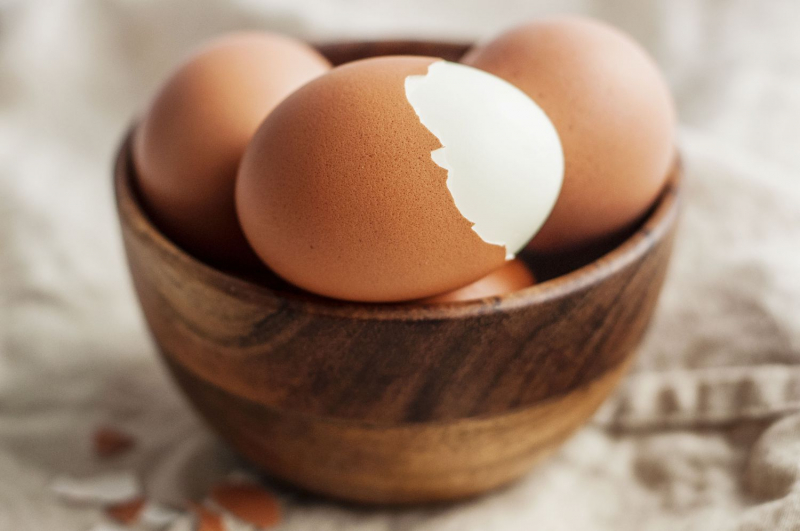
For hard-cooked eggs, there are two popular techniques. One technique is similar to the poaching method, but it starts with a pot of cold water (don't bother seasoning it) with the eggs at the bottom. Bring the pot to a boil, turn off the heat, cover and wait for four minutes for a soft-cooked egg and up to 15 minutes for a fully-cooked yolk. After the desired time, use a slotted spoon to remove the eggs from the water and transfer to an ice-water bath for 15 minutes to halt the cooking, then remove and either serve or refrigerate for later.
